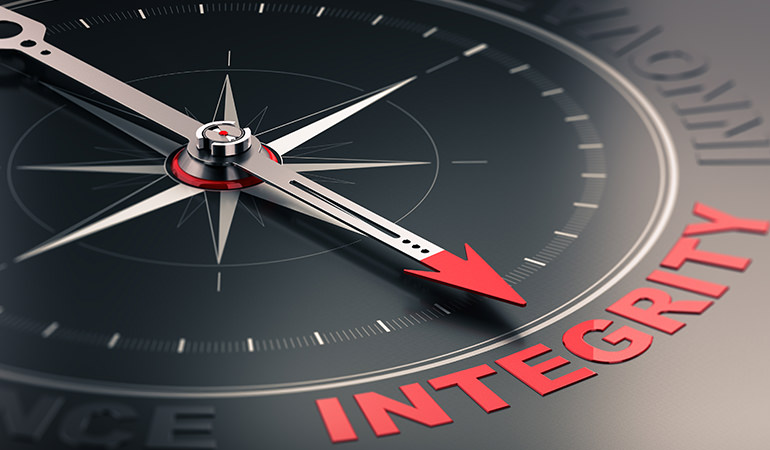As this century progresses, the workplace is steadily becoming more challenging. The skill set you need as a leadership coach today is broader and deeper than it has ever been. Organisations demand greater engagement, and coaches like you are tasked with meeting these new expectations. In a landscape like this, reflecting on yourself isn’t enough. You need someone to challenge you in much the same way as you challenge your coaching clients. You need coaching supervision to stay ahead of your game, stay grounded and resilient.
If, like plenty of executive coaches, you work alone or in a small practice, it’s all too easy to become isolated. It can be a lonely experience without the interaction of a vibrant coaching network, It’s also easy to find yourself in a rut, aware that you’re getting stale or banging your head against the same old wall once again. As a coach you can sometimes simply get tired, very tired, in serious need of someone to listen to you in a world where you’re the one who usually does most of the listening.
You can see why executive coaches benefit from regular coaching supervision: someone to walk by your side for a while, create a safe, professional space to examine your work in, reflect on things, gain insight and enjoy exactly the right kind of support.

What defines coaching supervision?
Coaching supervision is a process of reflection that helps you become more aware of your professional strengths and weaknesses, be stronger and more confident across a broad range of conversations, explore and clarify what goes on in your relationships with clients. It explores the knotty, emotionally entwined issues of transference and countertransference that sometimes despite your best efforts, grip you.
Supervision therefore supports you to intelligently create a whole range of meaningful and relevant coaching conversations. It’s all about being the very best you can, so you can deliver your very best to your clients.

This kind of high level, very personal, closely-tailored supervision enhances your ‘seeing’ skills, illuminating the subtle processes that form the most effective coaching conversations, spotting your own blind spots – something every coach has – and examining your thinking with clarity and calm. It’s actually a sort of ‘super-vision’. That’s why executive coaches in supervision often experience a strong sense of relief, insight and frequently gain fresh directional energy from the process. It means an awful lot to be listened to, be understood and to come away from a supervision session, refuelled and resourced.
Supervision also brings the dynamics between clients, coaches and the overall coaching system into high relief, enabling coaches to look way beyond everyday content into the wider world of context, which powerfully influences all the best coaching conversations. When you choose the right supervisor, the fresh relational awareness and understanding you gain means you can often lift transactional coaching dialogues to more deeply satisfying and more life-altering transformative conversations. And that’s what benefits your clients most of all.
How do supervisors do it?

The best supervisors combine intelligent dialogue, creative interventions and an emphasis is on collaborative learning in their work. Great supervisors help executive coaches become more self aware by reflecting on every area of their practice. They examine tricky ethical dilemmas, fluently address boundary issues and deal with contractual problem wisely.
Supervisors provide you with the opportunity to tackle difficult people issues and challenging behaviour, even resolve an incident that has left you lacking in confidence. They help you find solutions for yourself and then take that insight away into the coaching sessions that you will be holding ahead with your clients.
The finest executive coaching supervisors get creative in the pursuit of insight, which makes the sessions enjoyable as well as incredibly useful. It may involve role play, new coaching resources, or exercises designed to access, not only your thinking and feeling, but your imagination too. They’re all intended to promote more learning and better insight, revealing unhelpful unconscious processes and highlighting complex systemic factors. After your supervision sessions you should come away with different perspectives and new ways of approaching the issues that you have raised at the start of the session.
How executive coaching supervision will support you in managing your practice

Coaching supervision covers a variety topics, and clear contracting forms a highly important aspect of them all. It’s really important to ensure that standards and ethics are held, and boundaries are observed. Contracting and ethical conduct are there to protect executive coaches and their clients. If there are dilemmas present in your work, then coaching supervision is the safest place to raise them and explore the implications. It is the forum for ensuring that this area of your practice is upheld and you are clear about what you need to do when faced with potential situations that cut across your professional values.
During supervision, your levels of reflectivity will be improved, as will your own personal development. Your supervisor will suggest different perspectives, remaining attuned to your own learning and coaching styles, giving you access to new interventions, tools and areas of competence. Together you’ll explore new developments in coaching psychology, working with parallel processes and developing your systemic thinking skills. And your executive coaching supervisor will give you consistently constructive feedback and real encouragement.
Sign up for professional coaching supervision
At the Listening Partnership we provide professional coaching supervision to coaches just starting out, as well as to those who are are far more experienced. We give people like you, the space you need to explore your own inner landscape and discover how to enhance your skills in ways that suit your own unique coaching style. If you’d like discuss supervision and maybe book a session, we’d be pleased to hear from you.
About us:
We create the space for leaders to step back, think clearly, and navigate complexity with confidence. By sharpening the narrative that drives decisions, teams, and performance, we help leaders move forward with clarity and impact. Our approach blends deep listening, incisive challenge, and commercial focus—strengthening leadership at every level, from business transformation to boardroom decisions.
“We share resources that help coaches deepen their practice and expand their impact. The articles on this site are designed to spark fresh thinking, offer practical tools, and support the continuous growth of coaches at every stage. “
Jude Elliman
Founder
Our Core Approach:
We work with leaders to sharpen their thinking, strengthen their leadership, and navigate complexity with confidence. Our approach is built around three core areas:
Narrative Coaching – Working with the stories that shape leadership, teams, and organisations.
Commercial Focus – Cutting through complexity to drive clear, strategic decisions.
Challenge & Space – Asking the right questions while creating the space to reflect and grow.
Through this, we help leaders drive transformation, align teams, and make high-stakes decisions with clarity and impact.
